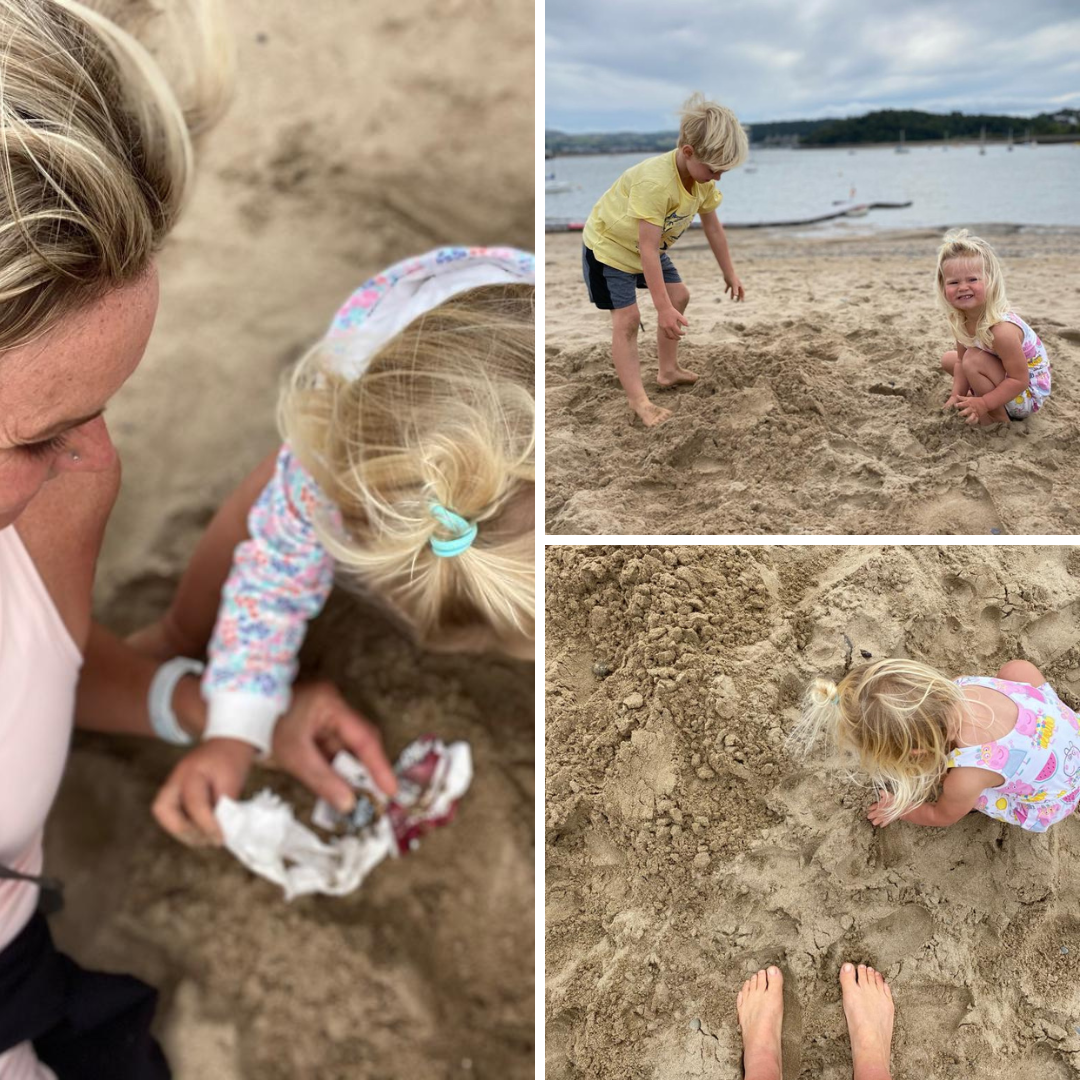02/09/22
Wild Swimmers Fighting the War on Waste

Wild swimming is an amazing experience.
The refreshing coolness of the water, the calmness of the surroundings, the breathtaking scenery… and an empty bottle of Coke.
Sadly, we are starting to see litter in our rivers, lakes, and seas more and more.
Between 4.8 and 12.7 million tonnes of plastic are tossed away into the sea every year.
And by 2040, this is expected to triple to over 26 million tonnes.
With litter already spoiling our beauty spots and damaging the environment, we need to act now to try and prevent the situation from worsening.
With both Recycle Week 2022 and the Great British Beach Clean happening this month, I thought it was the perfect time to highlight this problem with our readers – and share a few simple things you can do.
Take your litter home
This is a huge problem at this time of year in north Wales.
While we love to see so many visitors enjoying our beautiful surroundings, the litter left behind at Llyn Padarn at the end of a sunny day is incredibly upsetting.
Please be responsible and take EVERYTHING you bring to a wild swim spot, back home with you.
A lack of public bins (or full ones) is no excuse to leave litter behind. It’s easy enough to take a small container with you, so you can dispose of your rubbish at home.
If you want to go one step further, you could also pick up rubbish left behind by others.
I know it’s a big ask, but with the Great British Beach Clean happening 16th-25th September, it’s the perfect opportunity to do that little bit extra. Last year, 385 pieces of litter were found per 100m of beach!
Recycle more
The raw materials we use to create things like plastic, paper, and glass are in limited supply. By recycling the materials we’ve already harvested, mined, or created, the less we need to extract in the future.
While protecting natural resources is a hugely important reason to recycle, we should also consider the damage extracting these resources can do to forests and animal habitats.
We use less energy when making products from recycled materials too. For example, creating aluminium foil from recycled cans uses 95% less energy than when making it from raw materials.
As a result of all this, recycling also helps us cut carbon emissions.
Reduce the amount of plastic you use
It’s not just recycling plastic that’s key to protecting our wildlife and environment, it’s actually cutting the amount of plastic we use, particularly single-use plastic.
It’s not biodegradable, so when it is left behind on picnic benches, in the park, or wherever else, it doesn’t rot and often ends up in our natural waters.
Consider swapping your usual shop-bought bottle of water for a reusable one and refilling on the go, or preparing your lunch at home instead of buying individually wrapped items. This is one of the reasons we bring our soups in flasks and sandwiches in paper bags for our retreat guests to enjoy post-swim.
Please consider what you can do to keep your wild swimming spots clean and safe for generations to enjoy in the future.
Our final wild swimming retreats of the year are happening this month, and there are only a few spaces left, so click here if you’d like to join us for a last-minute break in the Lake District.

